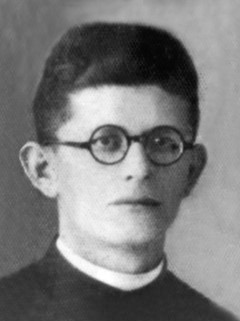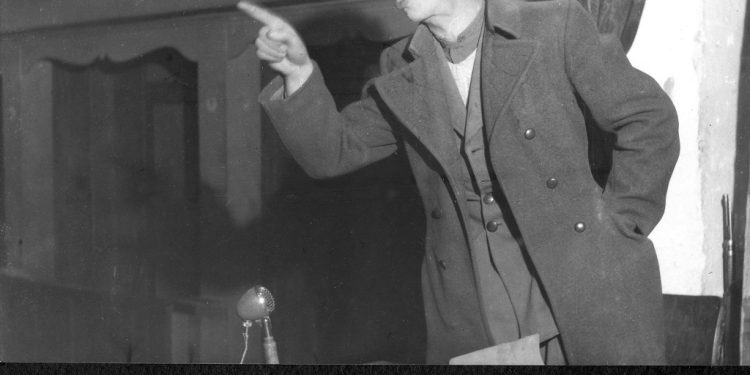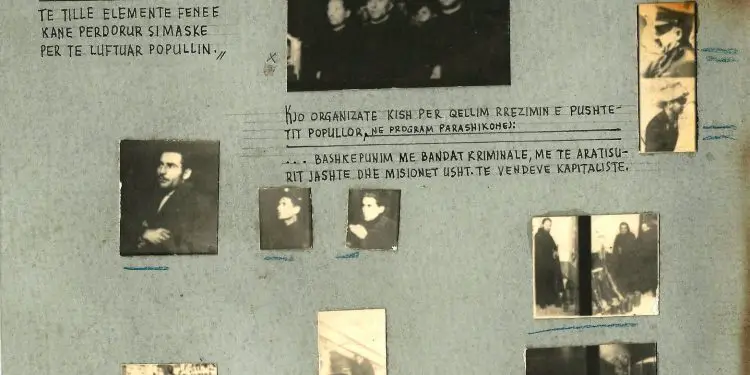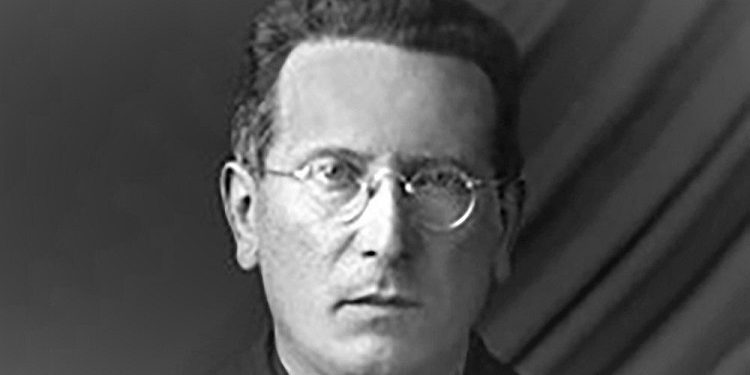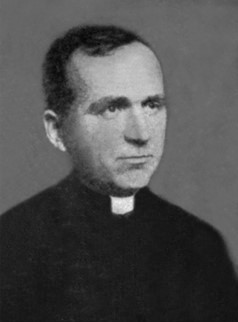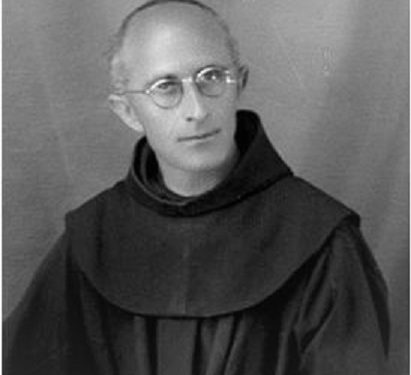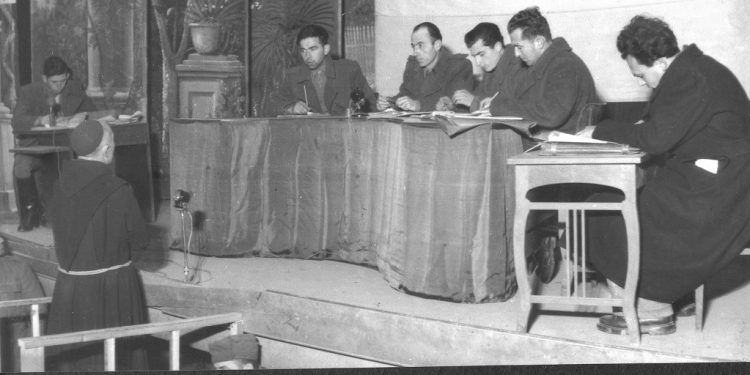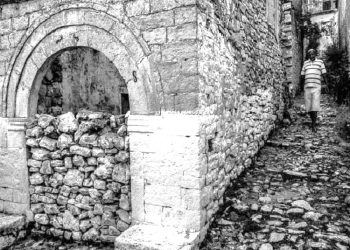By Gjovalin Zezaj
Second part
Memorie.al / Gjovalin Zezaj were born in the city of Shkodra in 1928. He was the first student of the “At Gjergj Fishta” gymnasium in the city of Shkodra, who was arrested by the State Security on November 27, 1945, after together with some other students, founded the anti-communist organization “Albanian Union”. After being held for some time in the interrogator in one of the improvised prisons of the city of Shkodra, he went to trial before a military college; where with him were also a large group of 39 defendants, including three clergymen. In his claim, prosecutor Aranit Çela requested the death penalty, by firing squad, for 11 of these defendants, while for Gjovalini, although he was still a teenager, he requested life imprisonment. Taking advantage of the amnesty due to age, Gjovalini served only 6 years in prison and after being released from prison, he was sent to work in very difficult jobs. But after 7 years, on May 25, 1959, the day when the head of the Soviet Union, Nikita Khrushchev, accompanied by Enver Hoxha and other senior leaders of PPSh, was visiting the city of Shkodra, Gjovali was arrested for the second time from the State Security. After being detained for some time in the investigator’s cell, he appeared in court and was sentenced to 5 years in political prison, accused of agitation and propaganda against the people’s power. After he was released from prison when he served the entire sentence given by the court, he continues his high school at night school (without breaking from work) and takes his matura. Gjovalin Zezaj worked hard jobs until he retired and after the 90s, with the image of the communist regime of Enver Hoxha and his successor, Ramiz Alia, he became active with the Association of Former Persecuted and Political Prisoners of Albania, for the Shkodra branch, until he passed away in 2020, at the age of 92. He also published the book: “Medieval Genocide in the 20th Century”, part of which we have selected for publication in this article.
Continues from last issue
Excerpt from the book “MEDIAEVAL GENOCIDE IN THE 20TH CENTURY”
The first sentence
I would also have my own risk from these tortures. One day the deputy director of the prison, Captain Riza Hoxha, called me and said: “You threw a letter from the small window of the bathroom. Who did you send it to and what did you write in it?” A fabricated accusation was unexpected for me, and I immediately contradicted it, trying to convince the deputy director that, apart from the armed guards, who surrounded the prison, no one else could get hold of the letter. But the captor, ignorant and at the same time unreasonable, stuck to his. I understood the purpose. The discussion ended.
The sadistic captain put German handcuffs behind my back in both hands, and with the help of two policemen, they knocked me to the ground and tied my legs with a rifle belt, and Riza Hoxha himself began to hit me with a stick between the soles of my feet as hard as he could power he had. Of course, the pain was great, but the only way was to submit to God’s will. This story continued until I passed out. Then I found myself in the dungeon, still bound by those handcuffs with my hands behind my back.
The groans of torture in the middle of the night caused all the prisoners to pass moments of anguish and sadness from the pain of what was being tortured at the whims of the command.
I cannot stay without mentioning the two guards from Korça, cousins of each other, who have left the best impressions in the prison of Shkodra. Their names were Safet and Remzi Hasanllari, who, during their service in the prison, helped the prisoners with all their means, to make their suffering easier.
But, unfortunately, it wasn’t long before they were also convicted as being implicated in the Postriba Anti-Communist Uprising. In addition to these, there was also a prison guard who helped us. I knew a policeman from Lushnja, his name was Teofik Luzi, who was really a human soul, he had built trust in me, and I in him.
The Director of the Camp had full powers over the prisoner: he had not the slightest responsibility if the prisoner died under torture. There the prisoners were treated worse than wild animals.
Once the Director gathered us all and said: “Write to the families not to send you food, why waste it; the camp food is good, he added: if someone doesn’t write to the family about what I ordered, then the letter will be returned to you. This is where the criminal reaches, enough to stop even the little food that the family tried to send us.
Nobody cared about these victims. Pharmacist Elez Troshani, a graduate in Italy, tried to help them, this prisoner too, but apart from aspirin and sulfamides, the infirmary had nothing else.
We have had quite a few cases, especially during the rains, when returning from work even when it was raining, we had to run, that those who were last were beaten mercilessly by the policemen, and I am not exaggerating when I say that some have remained in the canals giving spirit, were buried by the policemen themselves on the escarpments until today, their remains are not found.
The main leaders of the works were Yugoslav engineers and technicians, since they were internationalist brothers with the communist Albanians.
…The rains of the autumn season suspended the works and, at the end of November 1948, those of us who survived were sent back to the respective prisons.
As soon as the family members found out about our return, they immediately rushed towards the prison to meet us. But, alas, they were disappointed. Many did not recognize their people, especially the elderly, who had become bones and skin, living corpses. In that case, the oil cracked, I even remember when the prisoner Riza Hoti came out to the meeting, his wife looked for him, but she did not recognize him, and when she found out that it was her husband, she fainted crashed between the bars.
…In March 1950, we were sent, for manual labor, to the very camp where, two years earlier, we had removed the black olives, in the infamous Beden camp. Although it was said that the Party had made a turn, but apparently the wolf changes hair and not vice, therefore, we had not trusted him, and we were very upset by this transfer.
Some of our fellow high school students also brought us there. They were arrested a long time ago, accused of being anti-communists, but they had endured the most inhumane torture that humanity has ever seen. They were: Ahmet Bushati, who stayed with the investigator for 18 months and, in the end, did not accept anything, Xhevat and Remzi Quku, Thabit Rusi (brother of the martyr Fahri Rusi), Ernest Perdoda, Tomë Sheldia, Lec Bruçaj, Et’hem Bakalli, etc. This was the Albanian youth, the future of the homeland, who did not bow to the communist dictatorship and who fought in search of freedom and democracy.
The terrible history of this infamous camp would be repeated two years later when Viktor Kujxhia and Xhevat Quku were tortured to death, while Rrok Palaj, who almost died, was tied to the crossbar between the camps. Luckily for him, the director, who, to tell the truth, was not a mean man, was passing behind the camp outside, and quickly ordered the camp guards to take him down to the ground. Rock was unconscious, but they took him under surveillance. Father Donat Kurti, giving him quick helps, with artificial respiration, etc.
One day the director of the camp gathered us and said: “If you want to see movies every night, we will buy you a cinematographic camera with your work that you will do, working four Sundays in a row.” We were all happy, especially the young ones. Indeed, the camera arrived and every evening in the camp square a film was shown. But what did we see? Old kolkhoz films, documentaries about the life and work of Comrade Lenin and Comrade Stalin, documentaries from the Party Congress…, and the bad thing was that none of us could leave the country because we were considered unhappy, even to be sentenced to a month in prison…! We were so upset that we cursed the day the film camera arrived.
November was the month that, after 6 years of physical and moral torture; I would be released from prison. I was sentenced to life imprisonment, I was reduced to 30 years, but in the case of the amnesty that was made with the so-called “Party Turn”, I was reduced to 6 years, and maybe I can say that I also benefited from the age since I was only 17 years old when I was arrested.
I dreamed of the day of release, meeting my people, especially my mother, to whom I also wanted to give the love of my desolate father, who had died 3 years ago and who had left a big void in my heart. Before meeting with all my people, I dreamed that the second meeting would be among the cemeteries, where my beloved father rested forever, to the one who gave his soul, with my name in his mouth, I would go to the one who all He worked and sacrificed his life for us, and educated us with passionate patriotic and moral feelings. I will never forget how much courage he gave me while we were in court, and yet he was always smiling, always talkative, never bored, and that’s why he was respected by everyone.
The long-awaited day for me, for my parents and relatives came. It’s November 27, 1951. Six years ago, I was separated from the bosom of my family, from where the communist dogma grabbed me in its clutches when I was still a teenager. It was at that age when I needed parental support more than ever. So, 6 years ago for me and for the members of my family, the roads of calvary had begun, so much so that release seemed to me only like a dream…!
* * *
The second sentence
On a beautiful spring day, on May 25, 1959, the leader of the Party of the Soviet Union, Nikita Khrushchev, comes to our country for an official visit. Day of joy and happiness for the rulers. While for me and many like me, days of sadness.
I had just started working on the farm, when an ominous car quickly stopped in front of me. To tell the truth, I was calm and had no reason to be shocked, because I had not acted or developed any hostile activity against the government, but, alas, they had it with me! Three officers got out of the car and without any comment and without making a sound they grabbed me, handcuffed me and put me in the car like a criminal. The workers around were stunned…!
The car dropped me off at the courtyard of the Inner Branch. I cannot hide the serious state of mind in those difficult moments. What tired me the most was the preoccupation for the mother, who was already alone at home, without any help and at an advanced age, however, patience was needed. I had many occasions to cross the border without getting a thorn on my leg, but my love for my mother prevented me, because she had suffered a lot during the time I was in prison. They sent me to cell no. 5 where I found Father Konrad Gjolaj who had been sentenced with Don Deda Malaj a month ago, and I had even heard their trial.
After 4 months of confinement in that dark, humid dungeon, without enough air, I was brought to trial. I had the appearance of a man who had been discharged from the hospital after a serious illness. Since I had not admitted to anything, and the investigator, Captain Beqir Sala, had passed my file to the court, with a white trial, he was also convinced of my innocence, and I thought that I was on the verge of release. But no. Security had prepared the game.
The witnesses, although good people, but under the pressure of the Security officers, proved to be out of character, indecisive and unmanly. They declared absurd and false accusations in front of the jury and, I am convinced, even the President of the Trial, Nuri Resnja, was convinced of my innocence. While the prosecutor maintained a long pretence, accusing me of things that I was not even convicted of the first time and finally asking for the maximum sentence of Article 55, 10 years in prison.
After the jury retired to give the sentence and after a short break, the president gave the verdict, reducing my sentence from 10 years to 5 years in prison.
After 2 or 3 days they sent me to the big prison, where I met the friends I had left there when I was released, because they had been severely punished, but they did not seem upset: the prison had now become their home. I also met friends who were convicted a few years ago. After I stayed there for a few months, I was sent with several other prisoners to Laçi Camp, where they worked on opening irrigation canals.
On the first day when I started work, from lunch, I got a colpo di sole, with a high temperature, of course after a long period of isolation, not seeing sunlight for almost a year. Unfortunately, although there was an infirmary, there was no medical treatment, so they were forced to send me to Tirana Prison, where a room was reserved for the sick and was called the Prison Hospital. A doctor served there who was also a prisoner.
His name was Qazim Cerga. In the first meeting I had with him I made a good impression and I was not mistaken. Medicines were quite scarce. There was aspirin, sulfa guanidine, sulfamides, iodine, gauze and cotton, but no antibiotics. The doctor was good and very kind to everyone. We quickly became friends and sometimes he came and played chess with me.
After he kept me there for about 3 months and I was quite healthy and one day he told me that now I was completely healed, I was glad that I was healthy but, on the other hand, I knew that I was going to prepare for work and without hesitation I told him: “Doctor, I am in prison for the second time, I drank a lot of soup from working in the camps, and I almost left my bones there, only God saved me.” That was enough. He was silent and left. After an hour, he came back and they handed me a medical report, which I was going to present to the Command as unfit for work.
So, me too Dr. Qazim Cerga did me a great favor, not only did he save me from hard work, but he also helped my men who would no longer follow me back to the camps, loaded with sacks of food, in addition to the transportation costs that for them they were unaffordable.
From now on I was not the most effective of the camp workers, so the director of the prison ordered the guards to take me out of the hospital room and take me downstairs with other prisoners. There I met with my friends from the camps, including: Petrit Berisha, Bektash Kokona, Xelal Koprencka, etc. etc. all good and determined boys, as if they had been born of one mother. I felt at home among them.
Now I was sure that no one would move me from this place and I still had 3 years of prison left, and with the greatest coolness I set about preparing a French-Albanian dictionary, with about 20 thousand words that, with the help of friends, I finished it 3 months before release.
May 25, 1964 came: a truly marked day that I was being released from a terrible prison, but, at the same time, a day of pain and bitterness, that I had spent 5 years in prison without knowing how and why…!
While I was thinking, the jailer signaled me to go downstairs with my personal belongings. For this I was prepared that, which is the truth, the day of release from prison was respected, excluding any case that instead of release, the prisoner was interned by order above. Memorie.al




